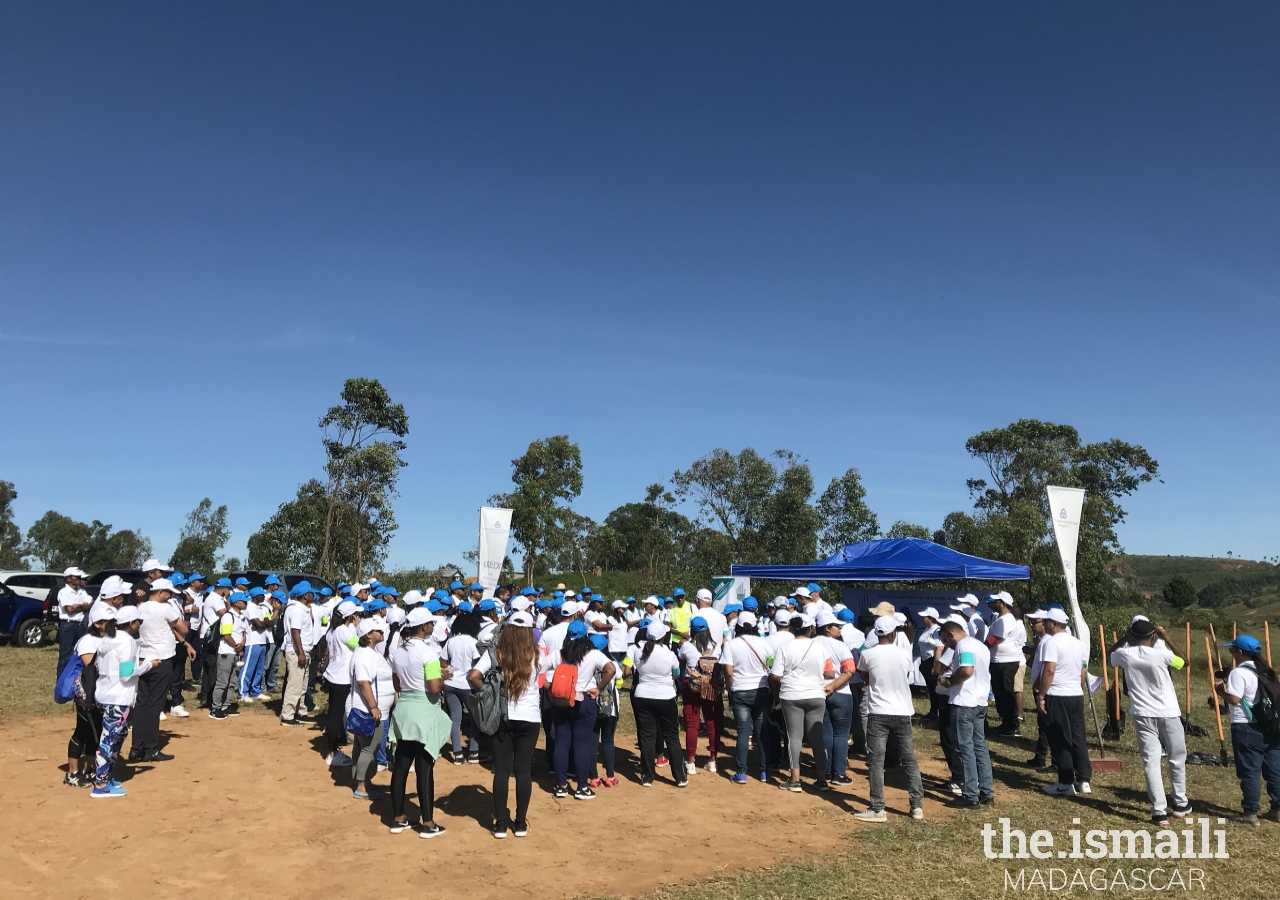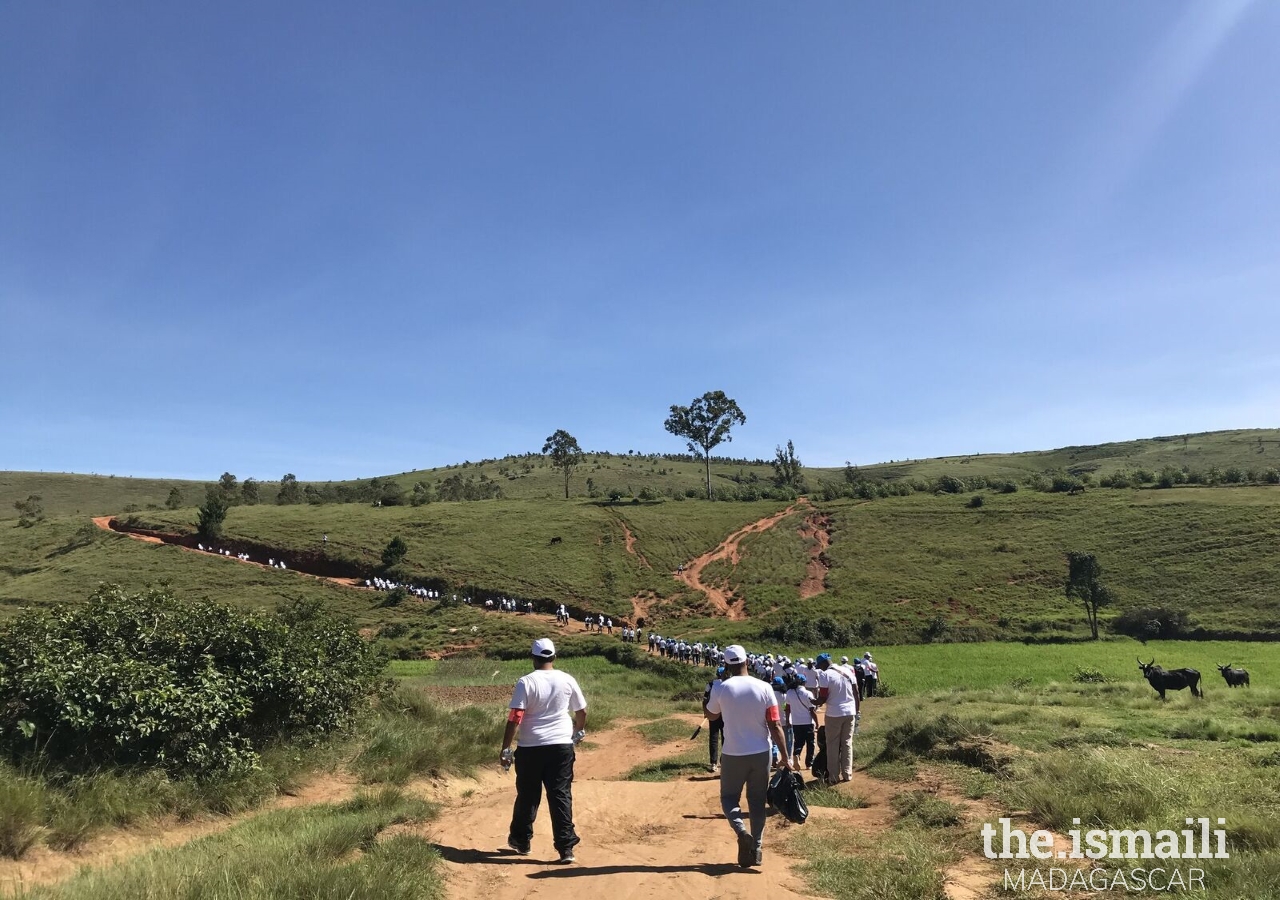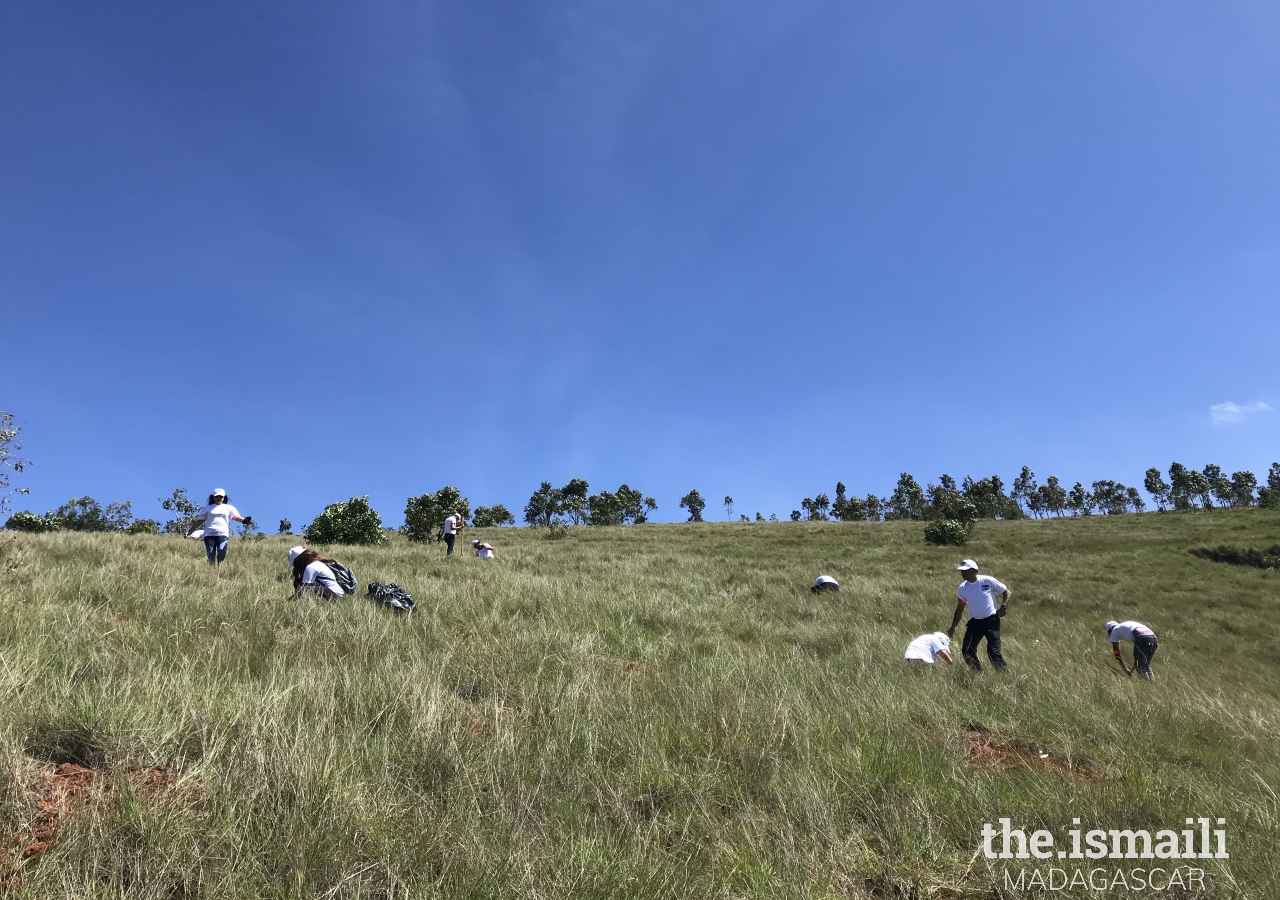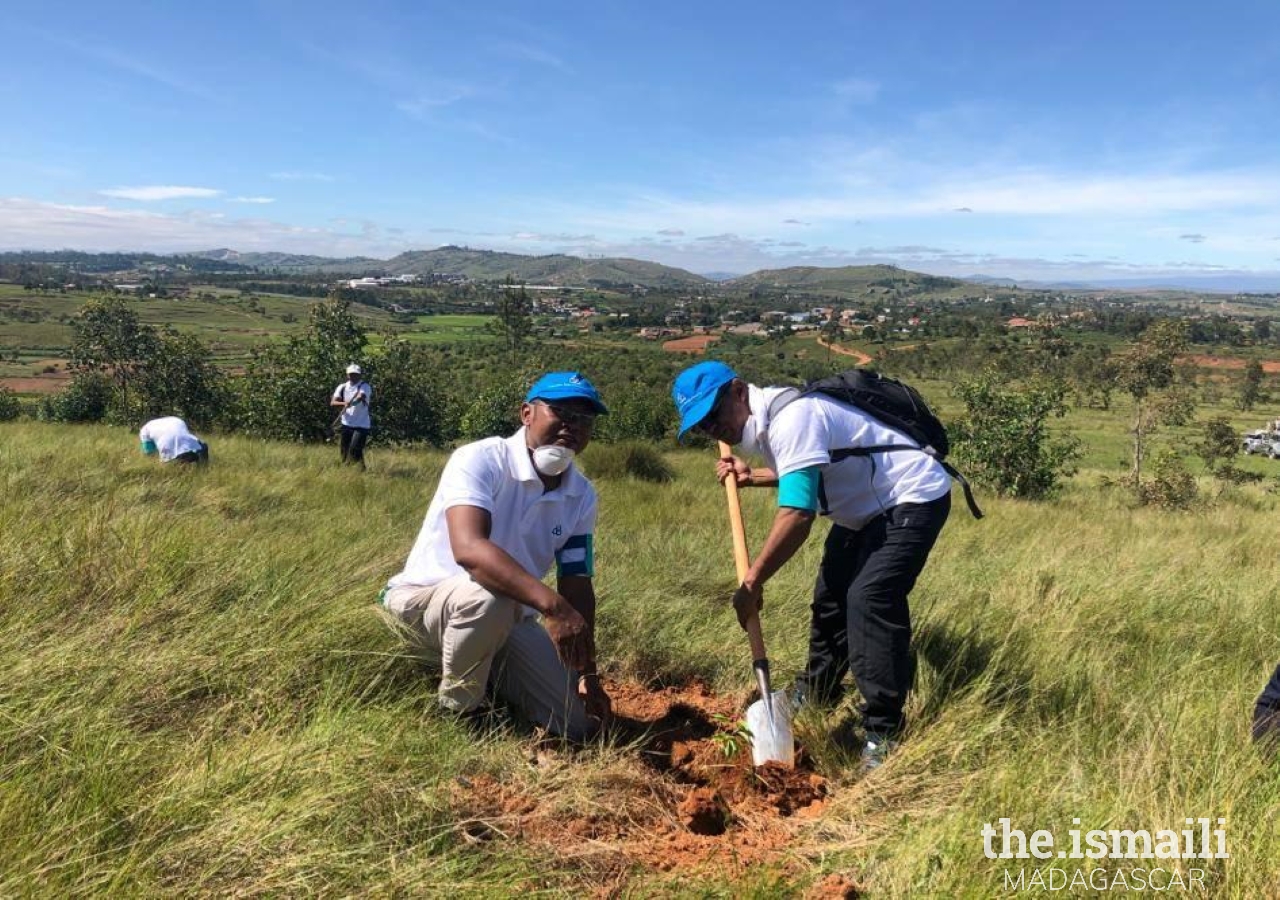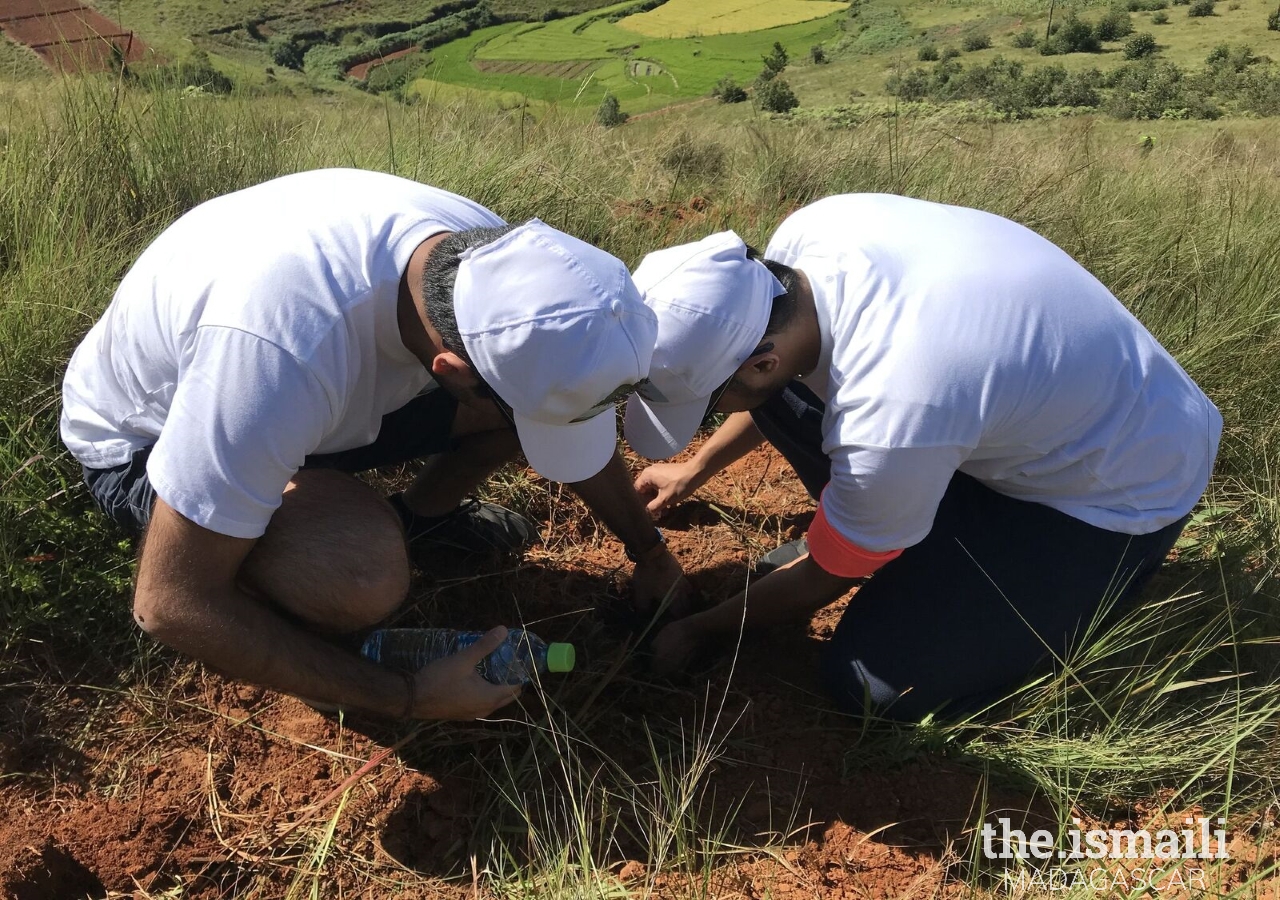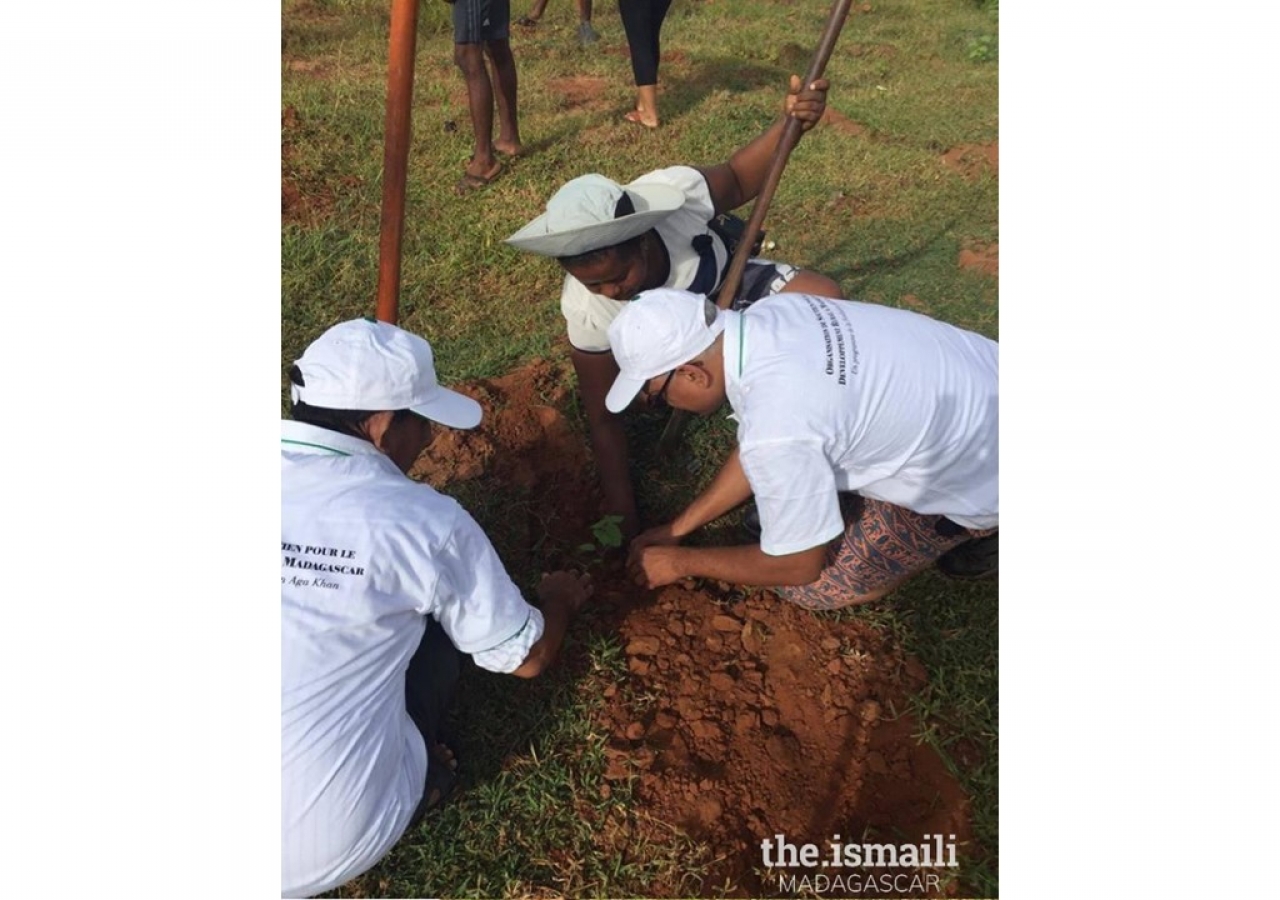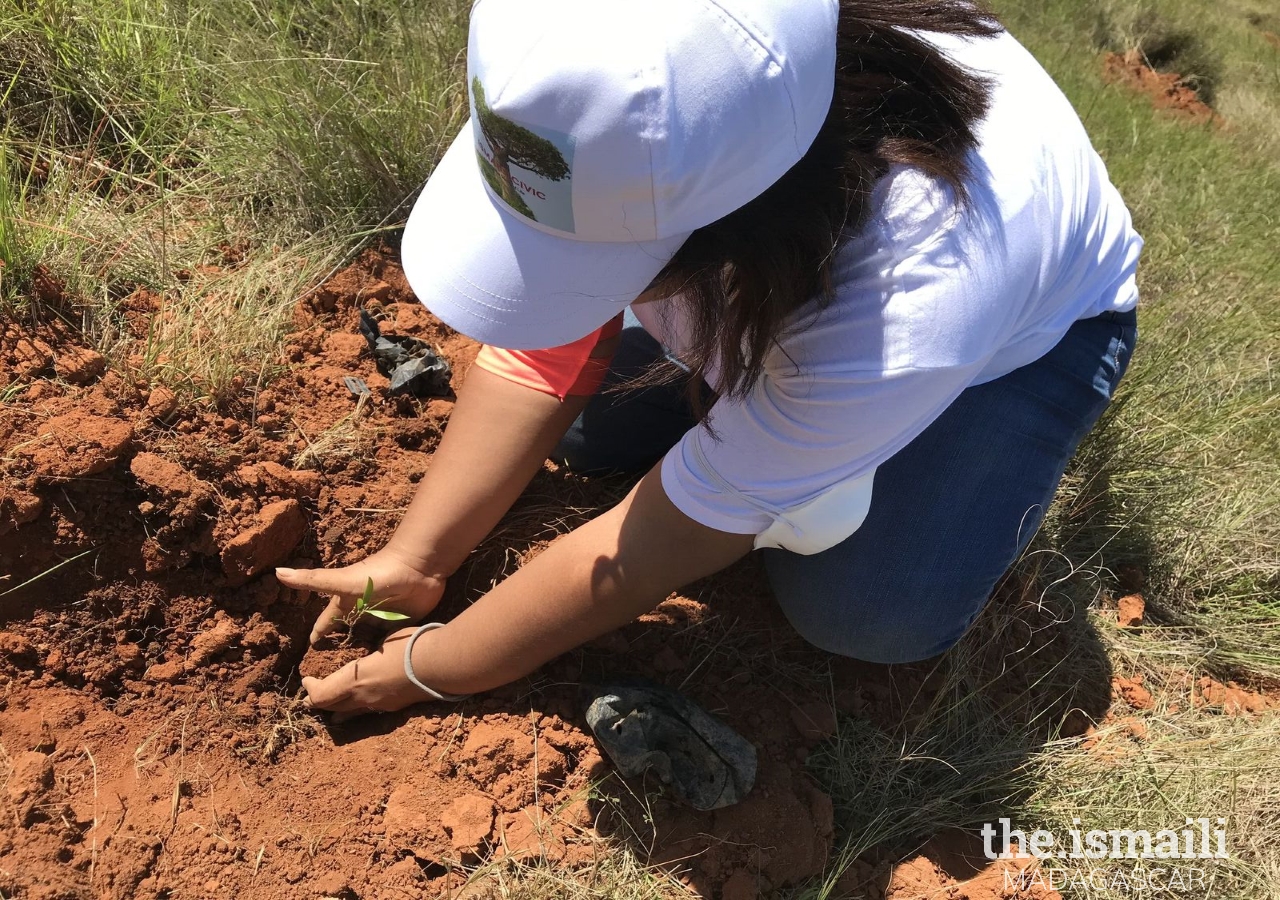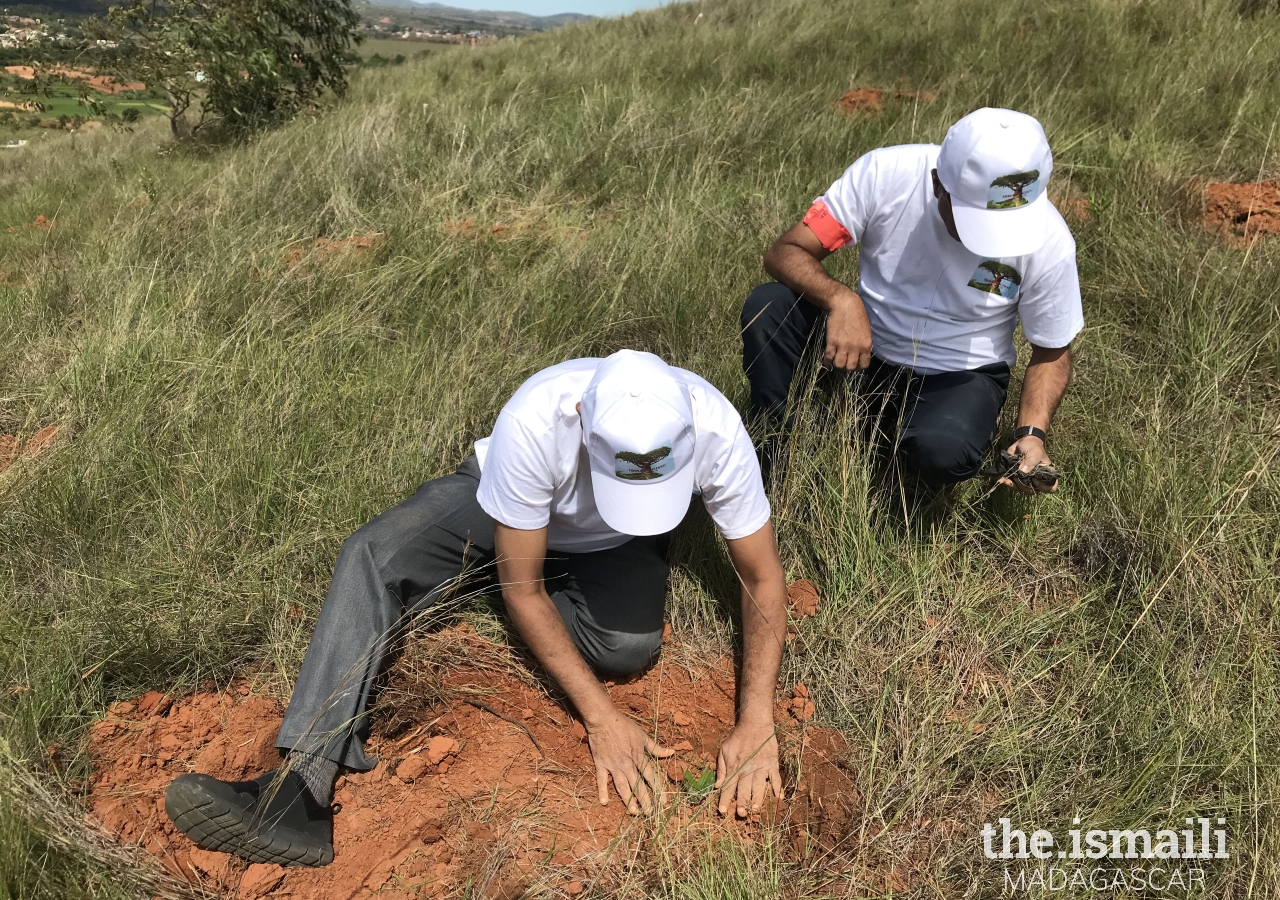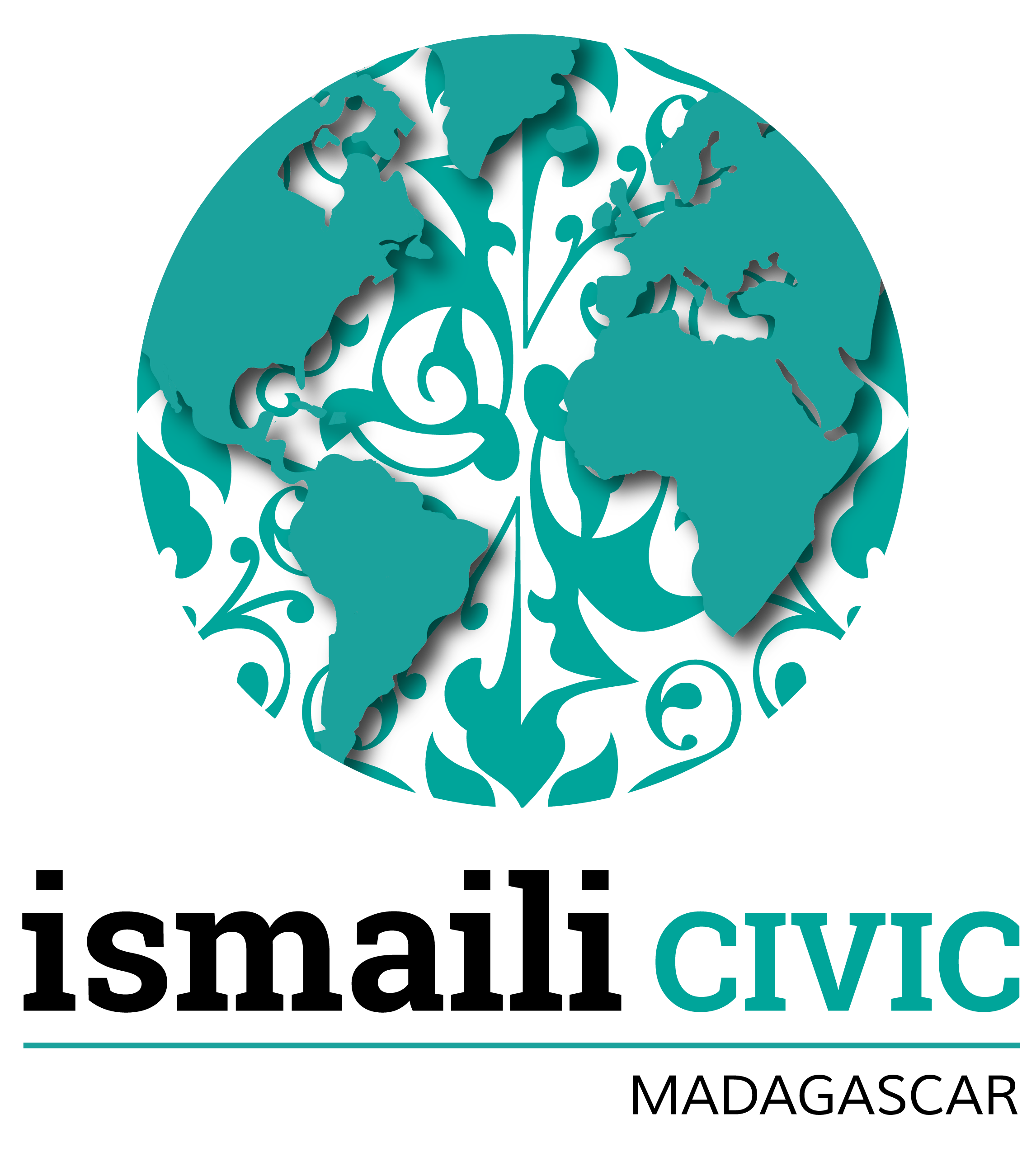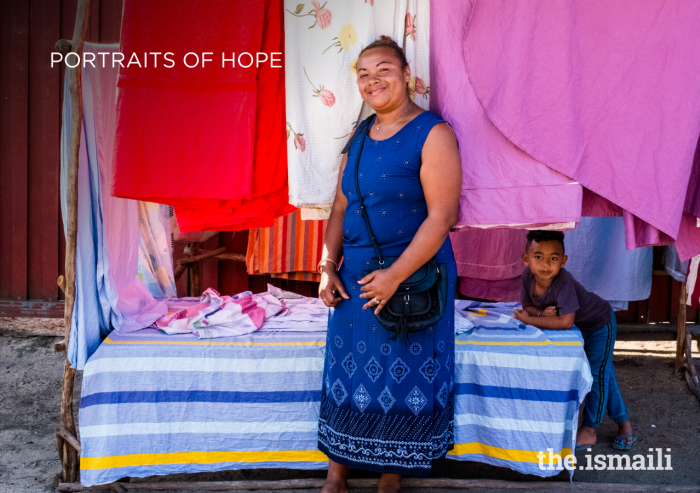Madagascar, formerly known as the Green Island, is now facing a growing effect of deforestation. In the last 60 years, 44 percent of the natural forests have disappeared. Looking at the data from the latest maps of 2015, Madagascar lost 9,650 km2 of forest between 2005 and 2013, or about 1,200 km2 per year between 2010 and 2013.
This deforestation threatens all the biodiversity present in Madagascar's forests. In fact, 90 percent of all the species in the territory are endemic and therefore threatened by a forest habitat that is becoming smaller and smaller.
The Jamati and Imamat institutions in Madagascar have come together to contribute to their common mission, which is to help improve the quality of life of the society in which they operate. The Organisation de Soutien pour le Développement Rural à Madagascar (OSDRM) as well as the Première Agence de Microfinance (PAMF) in collaboration with Jamati institutions through Ismaili CIVIC gathered more than 150 people on Friday 06 March for the reforestation of 2,000 trees for the first time in Ambohidratrimo Anosiala. A second reforestation took place took place in Antsohihy, in the North of Madagascar on Friday 13 March.
As Pinou Cheraly, President of the Ismaili Council for Madagascar said, "The objective is to contribute to the realisation of this ambition to find a Big Island again green, while continuing annually the massive reforestation as part of our eco-responsible commitments".
The Aga Khan Foundation has been present in Madagascar since 2005, and in 2012 will set up the Organisation de Soutien pour le Développement Rural à Madagascar (OSDRM), an association under Malagasy law, to manage its projects and programmes. Known and recognised for its interventions in agriculture (rice, cocoa, reforestation, artemisia...) and its integrated approach to community savings groups, OSDRM aims today to expand and complement its action in the fields of health, education and civil society, with a permanent concern to improve the quality of life of rural households.
The Première Agence de Microfinance (PAMF), was created in 2006 by the Aga Khan Agency for Microfinance (AKAM) and is part of the Aga Khan Development Network (AKDN). Its objective is to reduce poverty in Madagascar by combating economic and social exclusion through access to quality financial solutions adapted to the realities of the Malagasy market.
Ismaili CIVIC is a global programme in which Jamats around the world unite around a mission of service to humanity by providing services to improve the quality of life of the communities in which they live, while reflecting the ethos of civic engagement and citizenship of the Jamats. Its missions include support for the elderly and homeless, park maintenance, environmental protection, volunteering in food banks, and housing construction.
This important initiative for reforestation in the country reinforces the commitment of the Imam's institutions to the fight against global warming and the pressing need to compensate for the thousands of hectares lost each year in the country. It was with joy and good humour that more than 150 people participated in this tree-walk and tree planting. One participant of this day mentionned that: "This day was full of encounters and above all what a joy to be able to plant trees together to improve the fate of our country! I feel fulfilled and in harmony with this nature that will sustain our future generations."
Finally, this reforestation was followed by a meal and a presentation of the missions of each of the institutions present in order to really merge their mission and start this project of synergy and collaboration for the development of Madagascar.
The leaders of the different entities present during this unique day each respectively showed their desire to continue this work of reforestation and collaboration each year in order to contribute to the improvement of the quality of life of Madagascar for our future generations. As the saying goes, together we cannot change the world but we can take steps towards change. It is thus in unison that this first common project is the hope towards the achievement of greater development projects in the country.

